Our Library
Explore our publications, from research papers and series to educational materials, covering all aspects of conflict transformation and peace promotion.
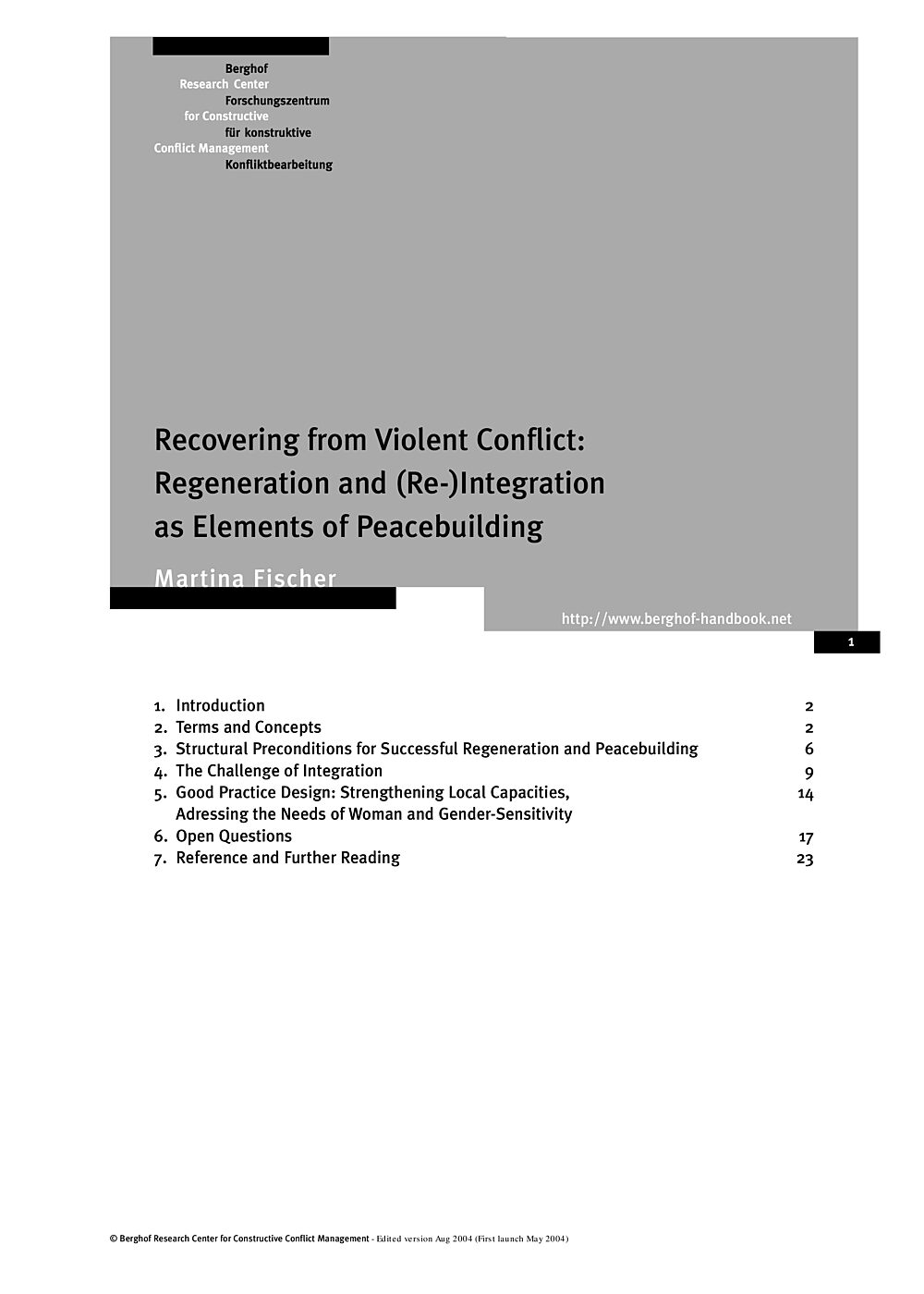
Recovering from Violent Conflict: Regeneration and (Re-)Integration as Elements of PeacebuildingHandbook Article
- Year2004
- Author(s)Martina Fischer
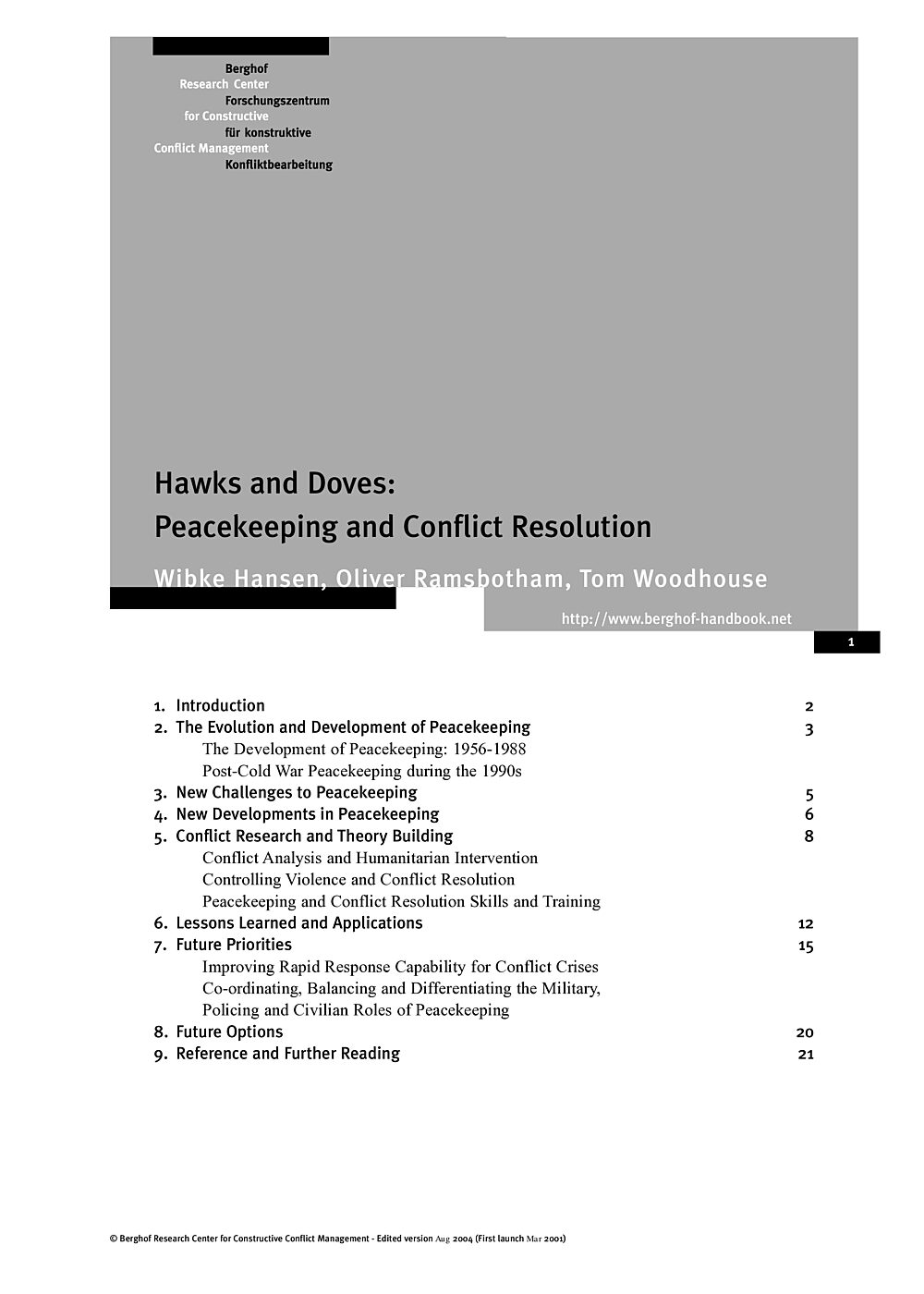
Hawks and Doves: Peacekeeping and Conflict ResolutionHandbook Article
Discusses the dual goal of controlling violence while rebuilding cooperative relationships, which calls for an integration of academic approaches with peacekeeping practice. The authors highlight the relevance of conflict resolution theory for peacekeepers, commenting on areas of application and addressing future peacekeeping needs. (revised for 2004 print edition)
- Year2004
- Author(s)Wibke Hansen, Oliver Ramsbotham, Tom Woodhouse
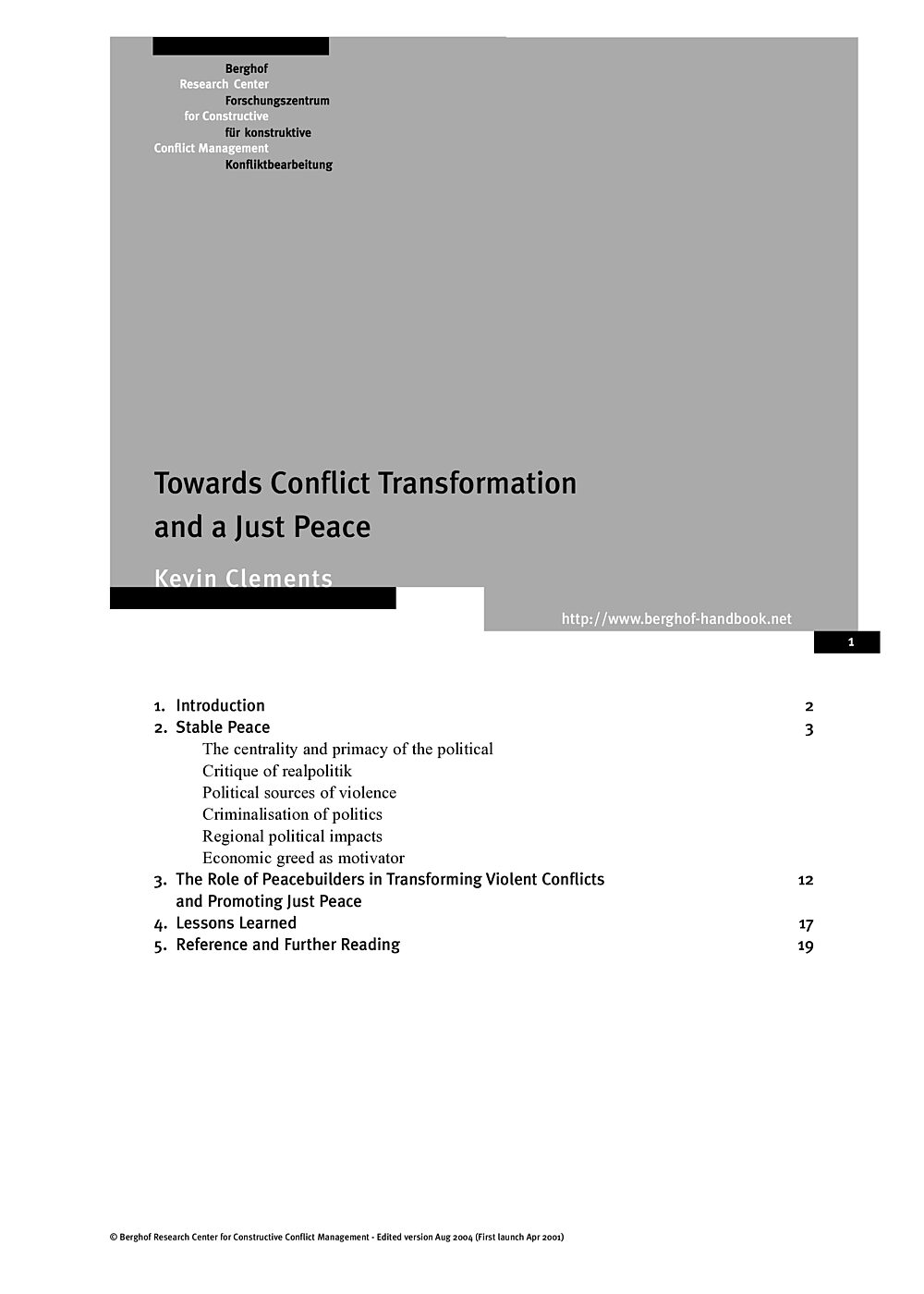
Towards Conflict Transformation and a Just PeaceHandbook Article
Deals with the challenges of linking theory, research and practice, and offers strategies for doing so in all relevant areas of social change. The author argues that the structural sources of conflict have been relatively neglected in conflict analysis and in the design of intervention processes. Until this situation is reversed, it will be difficult to generate stable, peaceful and just relationships. (revised for 2004 print edition)
- Year2004
- Author(s)Kevin Clements
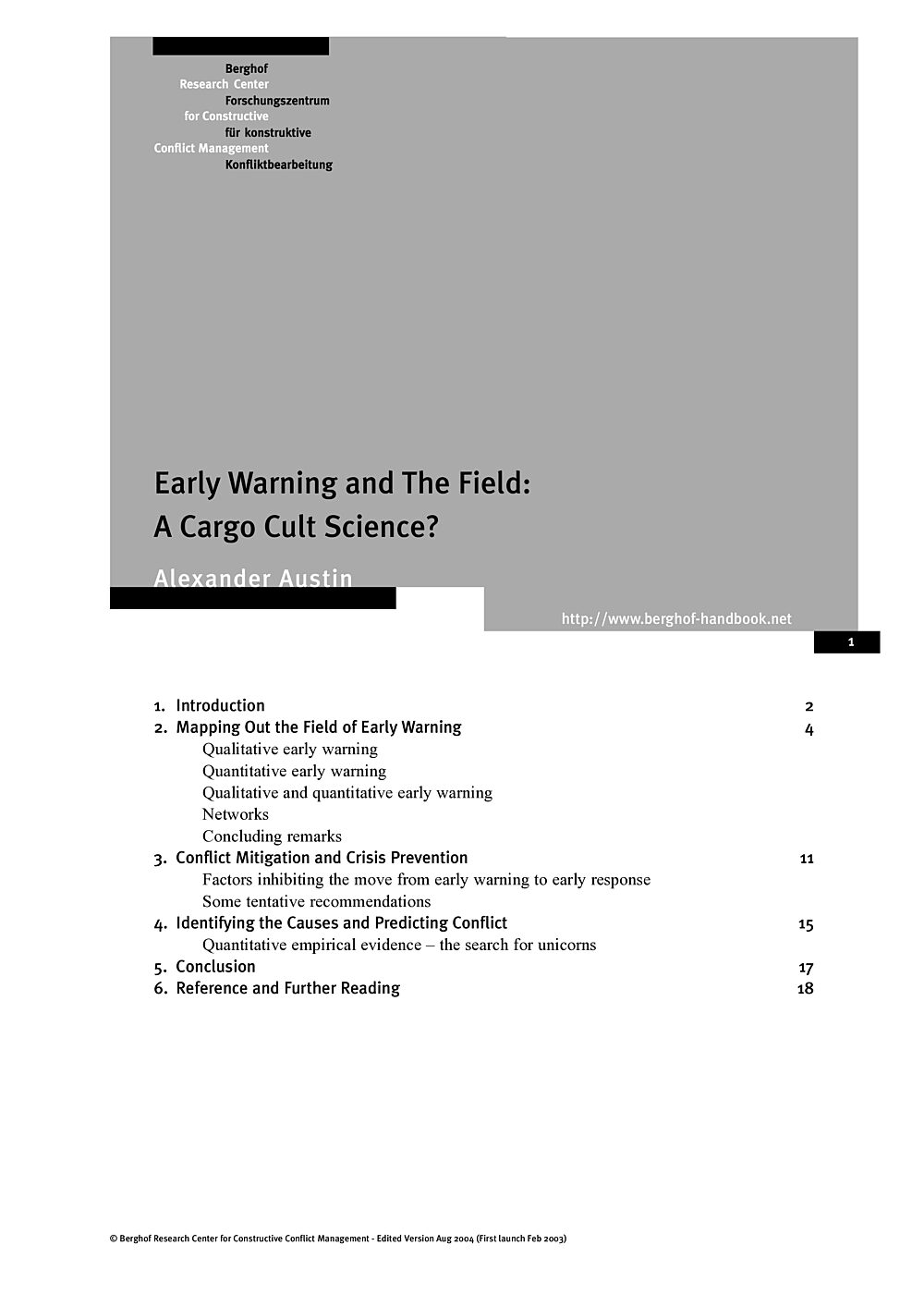
Early Warning and The Field: A Cargo Cult Science?Handbook Article
Introduces early warning activities and identifies different areas of focus, methodologies and mechanisms employed. The author discusses critically whether existing early warning systems can: a) identify the causes of conflict; b) predict the outbreak of conflict; and c) mitigate conflict. (revised for 2004 print edition)
- Year2004
- Author(s)Alex Austin
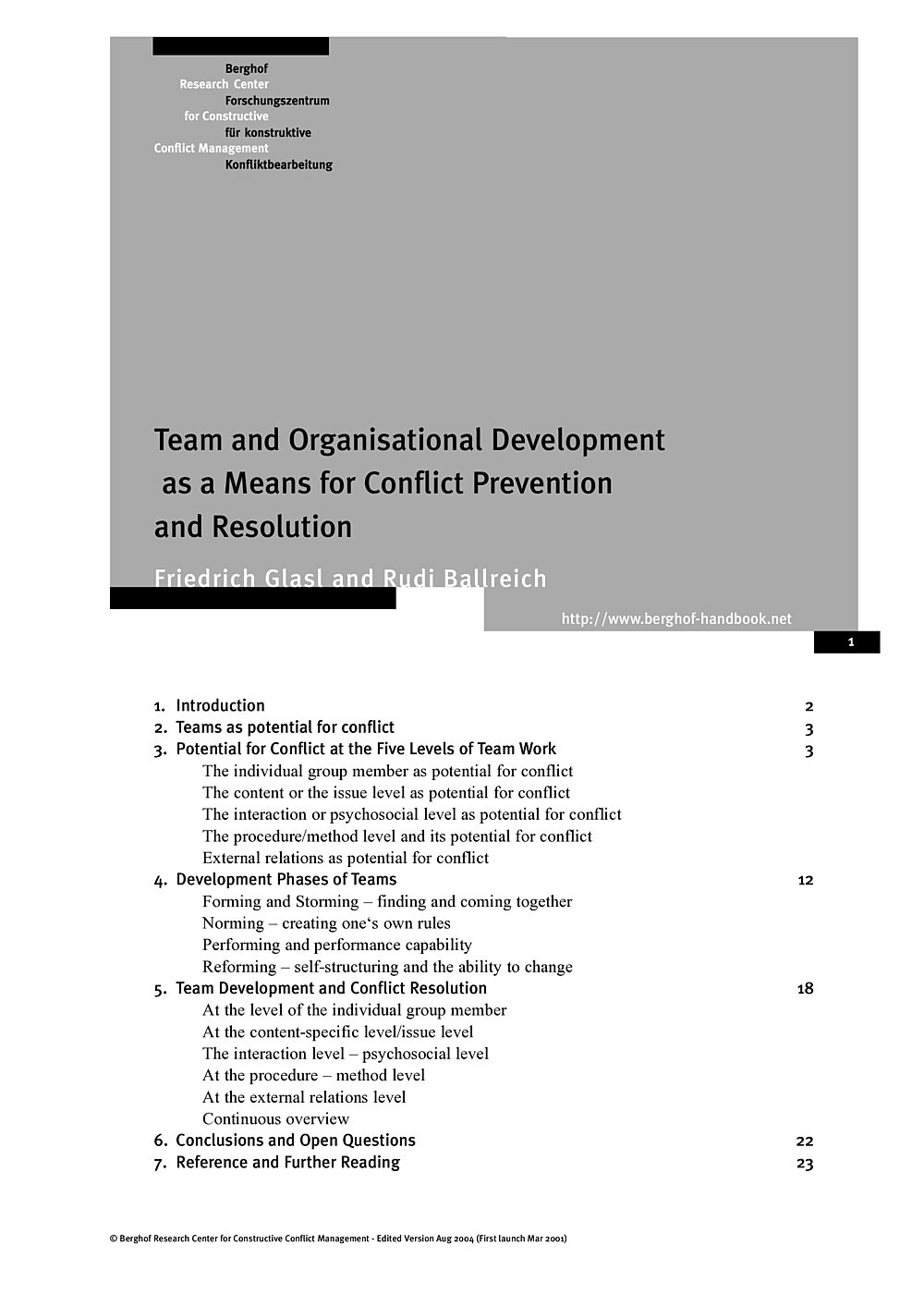
Team and Organisational Development as a Means for Conflict Prevention and ResolutionHandbook Article
Offers conflict transformation approaches for groups, teams and organisations. The authors identify five levels of cooperation within teams (i.e. the level of individual members, the content level, the interaction level, the procedural level and the level of external relations between the group and its environment) and offer suggestions for addressing conflict within teams at each level. (revised for 2004 print edition)
- Year2004
- Author(s)Friedrich Glasl, Rudi Ballreich
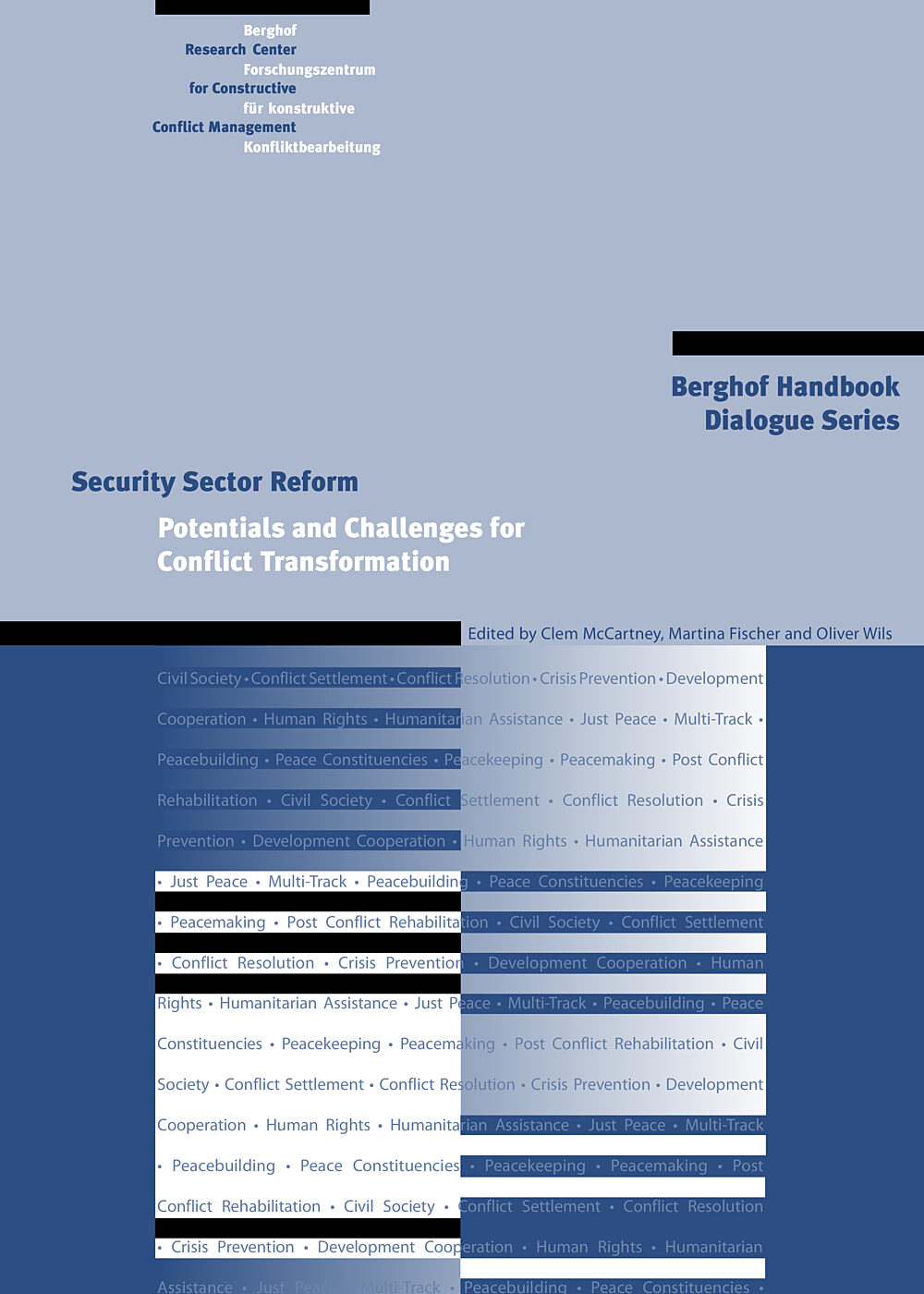
Security Sector Reform: Potentials and Challenges for Conflict TransformationHandbook Dialogue Series No. 2 - complete
Violent crises and internal wars are often consequences of the failure of states to provide stability and security for their citizens. International organisations and development agencies, in order to overcome cultures of violence and to support nation-building processes, have focused on security sector reform as an integral part of third-party intervention in recent years. This issue of the Berghof Handbook Dialogue Series examines the arguments for engagement with the security sector and provides an analysis of the dilemmas that arise, along with suggestions for how they might be overcome.
- Year2004
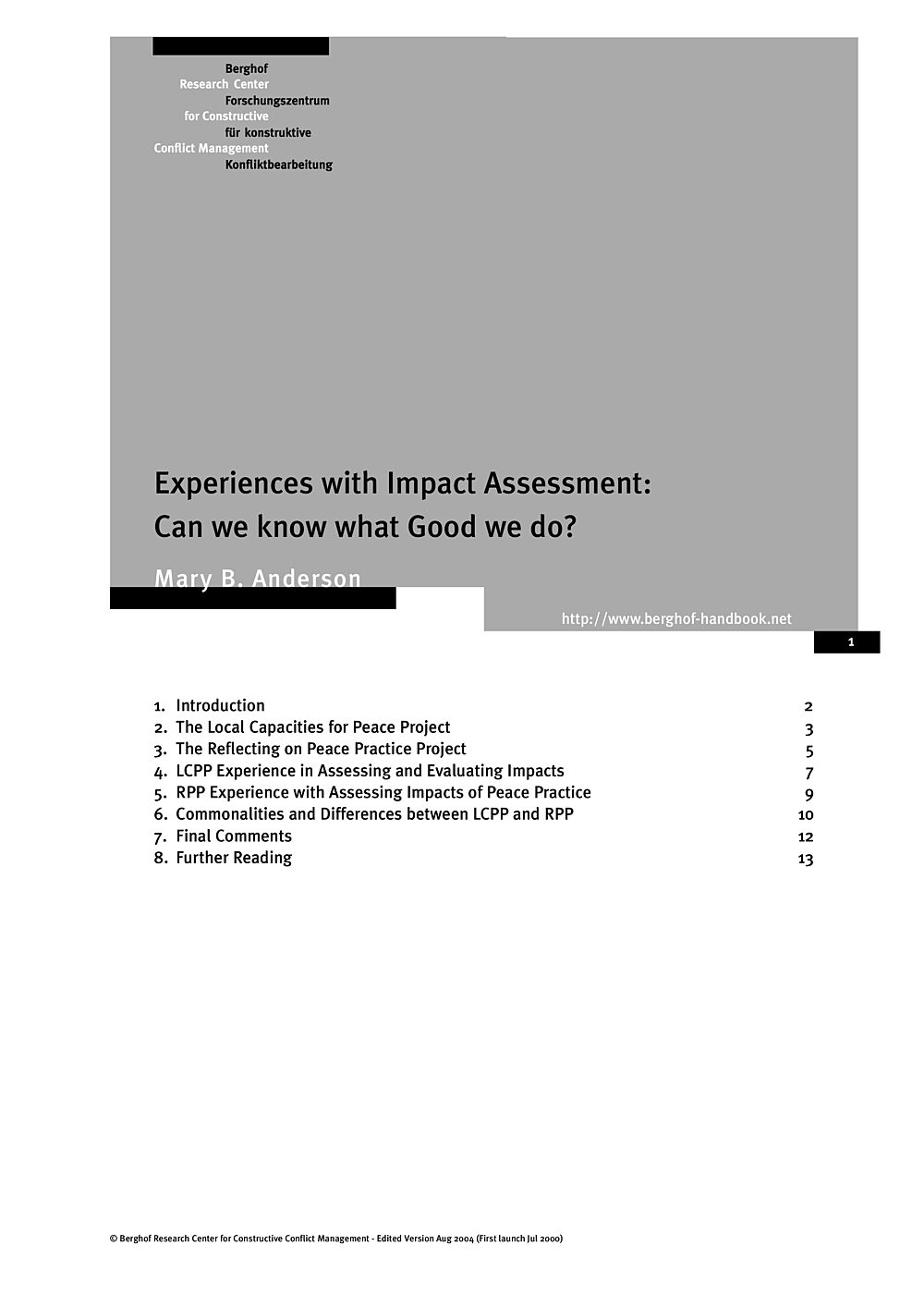
Experiences with Impact Assessment: Can We Know What Good We Do?Handbook Article
Considers how international agencies providing humanitarian assistance, development aid and/or support to peace processes can understand what their impacts are. The article builds on a collaborative learning project and identifies two major challenges: 1) selecting criteria or indicators for assessing progress; and 2) determining who or what particular outcomes can be attributed to. (revised for 2004 print edition)
- Year2004
- Author(s)Mary B. Anderson
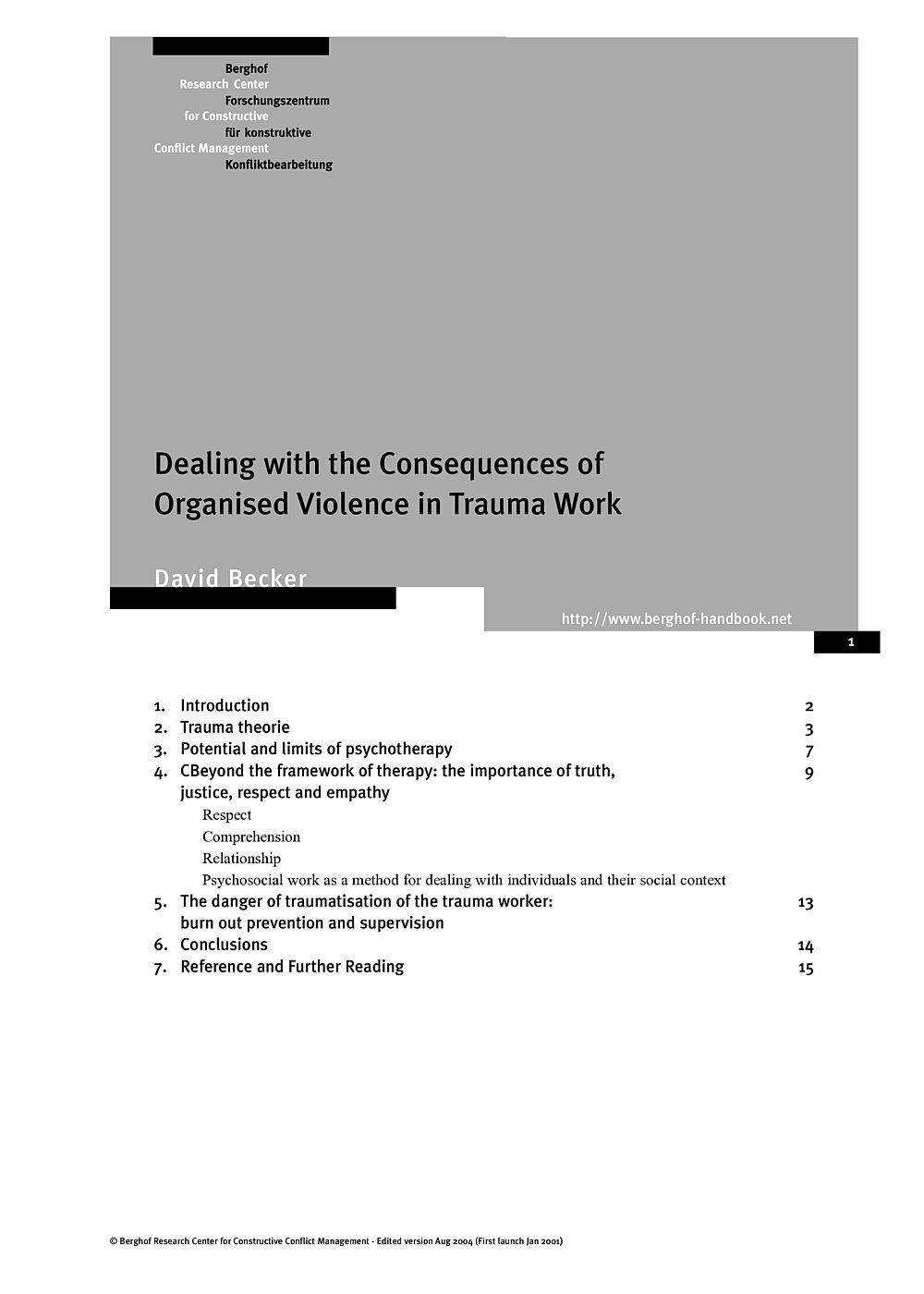
Dealing with the Consequences of Organised Violence in Trauma WorkHandbook Article
- Year2004
- Author(s)David Becker
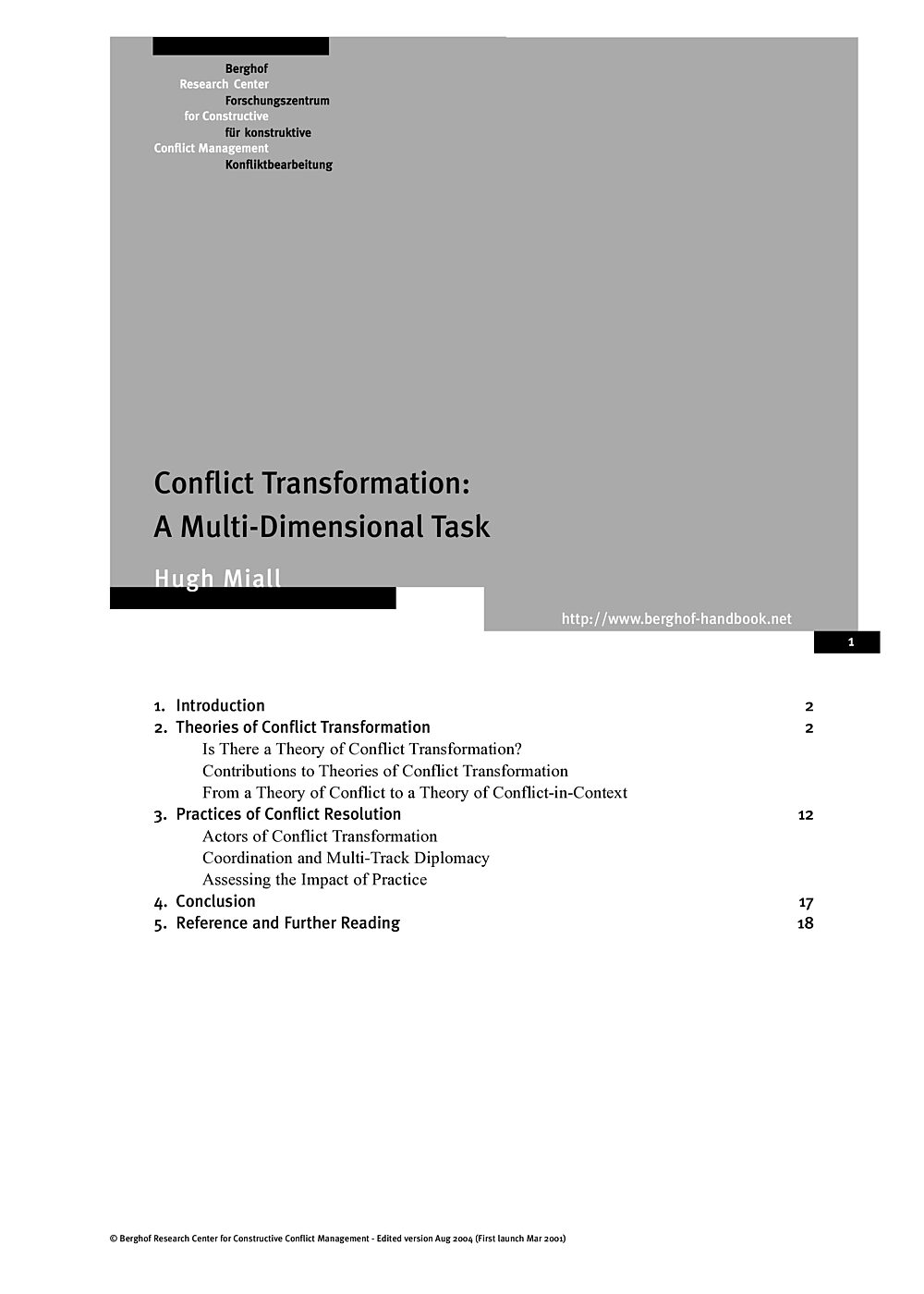
Conflict Transformation: A Multi-Dimensional TaskHandbook Article
Identifies key theorists and modes of practice. The author attempts to distinguish these from the theories and practices of conflict resolution and conflict management, arguing that conflict transformation draws heavily on these earlier traditions. (revised for 2004 print edition)
- Year2004
- Author(s)Hugh Miall
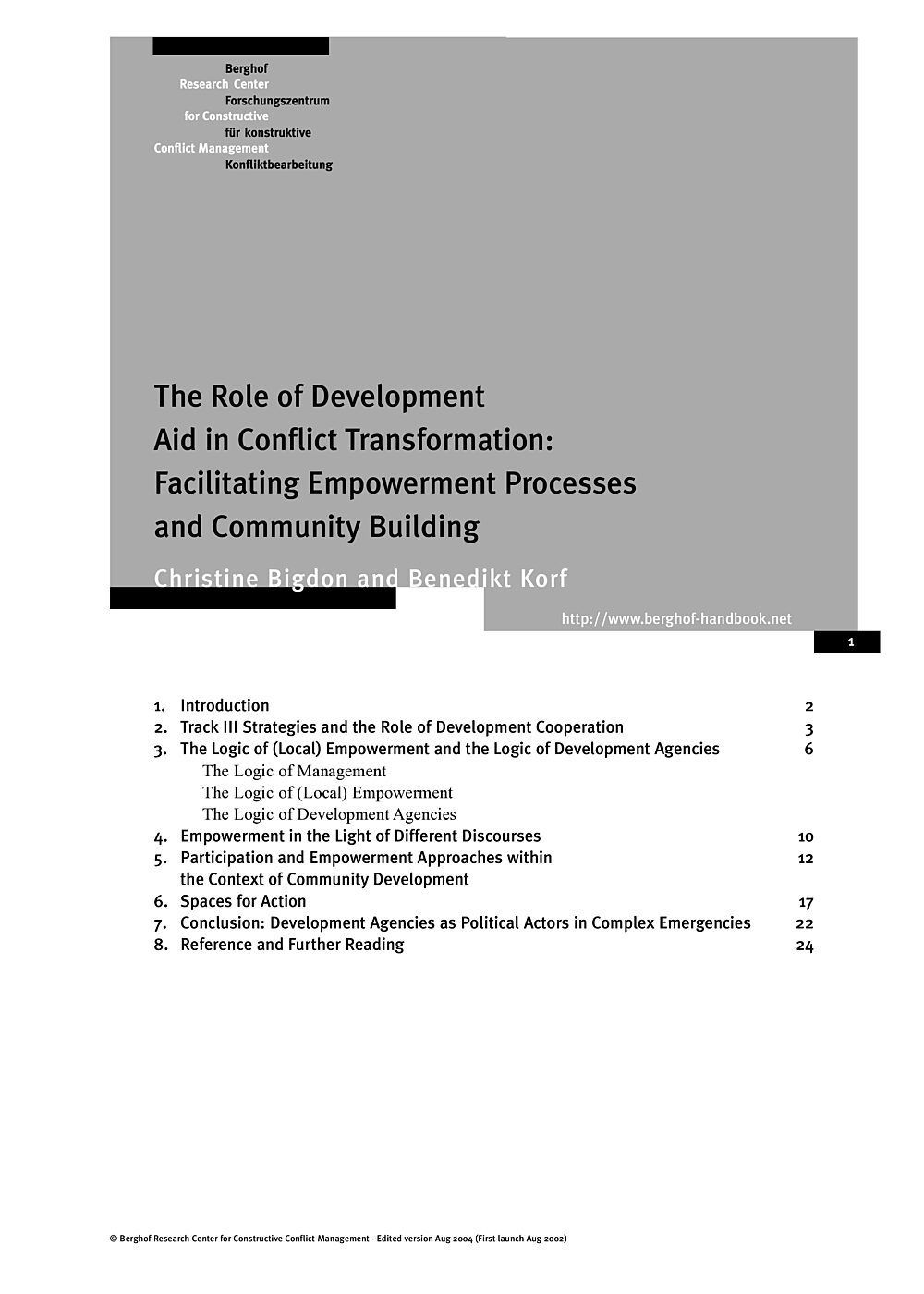
The Role of Development Aid in Conflict Transformation: Facilitating Empowerment Processes and Community BuildingHandbook Article
Highlights the role of development assistance for the structural aspects of peacebuilding. Exploring the nexus between participation, empowerment and conflict transformation, the authors critically discuss the potential of common participatory approaches at the community level and their impact for conflict transformation on the local level. (revised for 2004 print edition).
- Year2004
- Author(s)Christine Bigdon, Benedikt Korf